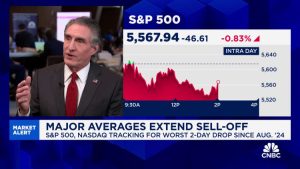Share this page:
On 31 October, Glasgow will host the COP26 climate conference, which aims to accelerate efforts towards reaching the goals of the Paris Agreement on climate change. The government has responded to the increasing demand for sustainability by preparing to launch a new green gas levy.
The new levy will show the UK’s commitment to tackling climate change. With the proposed levy set to launch before the end of the year, it might be time to think about how it could affect your household bills. So, here’s everything you need to know about the green gas levy and how it could affect you.
What is the green gas levy?
The green gas levy is a new government tax that will apply to all licenced UK gas suppliers. They will pay the levy according to the number of meter points they serve. This means that larger suppliers will be charged higher rates.
The levy will fund the injection of bio-methane into the UK gas supply. The initiative aims to increase the amount of green gas that is produced so that more can be supplied to customers. It is also being used to reduce the use of fossil fuels.
The introduction of the levy is likely to lead to higher gas prices. As a result, around £170 could be added to the cost of your household gas bills each year. Additionally, the government hopes that this steep increase will encourage more customers to move away from fossil fuels and invest in sustainable energy sources.
The levy was given the green light on 11 October 2021, and it’s set to launch officially this autumn. The first levy collection is scheduled for April 2022, which means that it won’t be long until we notice price increases.
Who will the green gas levy affect?
The green gas levy will place obligations on gas suppliers to make quarterly levy payments. These payments will fund the green gas support scheme.
In order to pay the new tax, gas suppliers will likely increase their prices, affecting any customers who use their gas.
The Green Gas Levy will affect all gas consumers. However, customers will not have to pay the levy directly. Instead, the cost of paying it as a supplier will trickle down into consumers’ gas bills.
How can you avoid the green gas levy?
It is hoped that the green gas levy will encourage customers to use environmentally sound energy sources. Therefore, those who rely on renewable energy rather than gas will not be affected by the levy.
All licenced UK gas suppliers will be obligated to pay the levy, so gas consumers will not be able to avoid higher prices. However, it is possible to avoid paying higher fees by swapping gas for a more sustainable energy source. Energy that is produced through solar panels, wind turbines or heat pumps will not be taxed.
Why choose green energy sources?
With climate change on the rise, now might be a good time to switch from your traditional household gas. Investing in renewable energy will help you to avoid rising gas prices and do your part for the planet!
Solar panels generate energy from sunlight and can be used to power your entire home or business. While the initial cost of solar panels can seem high, they could help you save on bills in the future. The average UK home can save around £653 per year by using solar power instead of gas.
Other renewable alternatives to gas include wind turbines, heat pumps, biomass energy and hydropower. The benefits of renewable energy installations go much further than just cutting the cost of gas bills, making them an excellent investment.
Was this article helpful?
YesNo
About the author
Share this page:
Some offers on The Motley Fool UK site are from our partners — it’s how we make money and keep this site going. But does that impact our ratings? Nope. Our commitment is to you. If a product isn’t any good, our rating will reflect that, or we won’t list it at all. Also, while we aim to feature the best products available, we do not review every product on the market. Learn more here. The statements above are The Motley Fool’s alone and have not been provided or endorsed by bank advertisers. John Mackey, CEO of Whole Foods Market, an Amazon subsidiary, is a member of The Motley Fool’s board of directors. The Motley Fool UK has recommended Barclays, Hargreaves Lansdown, HSBC Holdings, Lloyds Banking Group, Mastercard, and Tesco.
This post was originally published on Motley Fool







